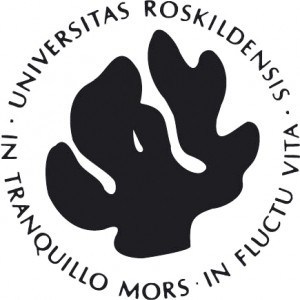Photos of university / #usqedu
Spatial Science at the University of Southern Queensland offers a comprehensive and innovative program designed to equip students with the skills and knowledge necessary to excel in the rapidly evolving field of spatial information technology. This degree program provides a blend of theoretical foundations and practical applications, focusing on geographic information systems (GIS), remote sensing, geospatial analysis, and spatial data management. Students will learn to analyze, interpret, and visualize spatial data to solve real-world problems across various sectors, including urban planning, environmental management, disaster response, transportation, and resource assessment.
The curriculum is structured to develop critical thinking and technical expertise, with topics ranging from fundamental cartography and spatial data acquisition to advanced spatial database design and spatial analysis techniques. The program emphasizes hands-on experience through laboratories, industry projects, and internships, ensuring graduates are workplace-ready with practical skills in the latest geospatial software and tools. Students will also explore emerging technologies such as drone mapping, LiDAR, and GPS applications, keeping them at the forefront of innovation in the spatial sciences.
Throughout their studies, students will have access to state-of-the-art facilities and software platforms, supported by our experienced faculty who are actively engaged in research and industry partnerships. This close connection to industry ensures that the program remains current and aligned with workforce demands. Graduates of the program will be well-positioned to pursue careers as GIS analysts, spatial data scientists, remote sensing specialists, urban planners, environmental consultants, and more.
The program also offers pathways to further study, including honours and research opportunities, preparing students for leadership roles in academia, government, and industry. By completing this degree, students will gain the expertise needed to contribute meaningfully to society’s sustainable development and technological advancement through innovative spatial solutions. With a focus on real-world applications and industry relevance, the Spatial Science program at USQ is an excellent choice for those passionate about utilizing spatial data to make a difference in the world.
The Master of Spatial Science involves a minimum of either three semesters of full-time research or six semesters of part-time research at the conclusion of which a candidate prepares and submits for examination, a thesis in research or design. Research topics are selected from areas of geodesy, surveying, photogrammetry, land management, geographic information systems (GIS) or spatial science education.
Program completion requirements
The Master of Spatial Science is comprised of 12 units of study, consisting of one unit of coursework and an 11 unit research project and dissertation.
Students will be required to complete the course ENG8001 Masters Dissertation A to satisfy the coursework component of the program.
For administrative purposes students will enrol in a selection of the courses listed below in order to complete the 11 unit research dissertation. The 11 units of research will be composed of individual courses ranging in size from one to four units. This provides students with the opportunity to undertake the program in either part-time or full-time mode. Full-time students normally enrol in four units for each term in which they engage in research activities. Part-time students normally enrol in two units for each term in which they engage in research activities.
Programs may be varied to suit the needs of individual students. Enrolment in the above courses is used to assess eligibility for scholarships and awards, and to levy program fees where appropriate, so it is important to consult with the Associate Dean (Research) when finalising enrolment for this program.
All of the courses listed below are ungraded courses, i.e. successful completion will be indicated by a Satisfactory Progress grade.
Some candidates may be required to complete additional coursework, up to a maximum of four single-unit courses, in areas relevant to their proposed field of study. The coursework requirements for each student will be determined by the Faculty of Health, Engineering and Sciences in consultation with the student.. Candidates would be expected to demonstrate a high level of achievement in any additional coursework courses.
Required time limits
Full-time students have a maximum of three years to complete this program. Part-time students have a maximum of six years to complete this program.
A pro-rata adjustment of the maximum time period will apply for those students who transfer from one mode of study to another. A pro-rata reduction in the maximum time period will apply to students who are admitted to a program with advanced standing.
Program requirements for the Master of Spatial Science at the University of Southern Queensland typically include a combination of coursework and research components designed to prepare students for professional practice in spatial analysis, GIS, remote sensing, and geospatial data management. Prospective students are generally required to hold an accredited undergraduate degree in a related discipline such as geography, environmental science, surveying, or information technology. Demonstrated proficiency in English is mandatory, with international students required to meet specific language standards. The program emphasizes the development of practical skills in spatial data collection, analysis, and visualization, often involving the use of industry-standard software and tools. Students must complete core subjects covering fundamental concepts in spatial science, including GIS principles, remote sensing techniques, spatial data analysis, and cartography. Elective courses allow specialization in areas such as spatial data management, spatial intelligence, or urban planning. Certain courses may entail practical fieldwork or laboratory investigations to reinforce theoretical knowledge. Throughout the program, students are expected to undertake independent and collaborative projects that demonstrate their ability to apply spatial science principles to real-world problems. Thesis or research project work is typically a key component, requiring the submission of a detailed research report that contributes new insights to the field. Program prerequisites may include foundational knowledge in GIS, computer programming, or mathematics, depending on prior academic background. Candidates must meet the university’s general admission requirements, including academic transcripts, evidence of English language proficiency, and any necessary documentation. The program aims to produce graduates equipped with the technical expertise, critical thinking, and ethical understanding necessary for careers in government agencies, environmental consulting, urban development, or academia.
The University of Southern Queensland offers various financing options for students enrolled in their degree programmes, including those in spatial science research. Students can access government-funded concessions and scholarships, which significantly reduce the financial burden of higher education. Commonwealth Supported Places (CSP) are available for eligible domestic students, allowing them to pay a subsidised tuition fee set by the government, thereby decreasing overall study costs. Additionally, students can apply for a range of scholarships based on academic merit, financial need, or specific criteria related to rural, indigenous, or regional backgrounds, which can include tuition waivers, stipends, and material support. The university also provides access to financial aid and assistance programs to help students manage their expenses throughout their studies.
Private financing options are also available, including student loans and payment plans. The HECS-HELP scheme is accessible for eligible Australian students, permitting them to defer their tuition fees and repay them gradually through the tax system after they reach a certain income level. International students generally pay full tuition fees upfront or through payment plans facilitated by the university, as government-funded assistance schemes are not available to them. The university encourages financial planning and offers advice and guidance through its student services to help students understand their financial obligations and options. Furthermore, students are advised to explore external scholarships, grants, and part-time work opportunities to support their studies financially. The university's comprehensive approach ensures that students in spatial science research programmes can access necessary funding avenues to complete their education successfully.
The Spatial Science Research program at the University of Southern Queensland (USQ) is a comprehensive initiative dedicated to advancing knowledge and innovative applications in the field of spatial sciences. This program focuses on the integration of geographic information systems (GIS), remote sensing, geospatial analysis, and cartography to address complex spatial problems across various sectors, including urban planning, environmental management, agriculture, construction, and transportation. Through a combination of rigorous research, technological development, and practical applications, the program aims to contribute significantly to the understanding and management of spatial data and its implications in real-world scenarios.
USQ's Spatial Science Research program benefits from a strong interdisciplinary approach, involving collaboration among experts in geography, computer science, engineering, environment science, and related fields. It leverages the university’s state-of-the-art laboratories, geospatial datasets, and cutting-edge software tools to foster innovation and experimentation. Researchers affiliated with this program conduct studies that range from developing new spatial analysis methodologies to enhancing the accuracy and efficiency of geospatial data collection and processing techniques.
The program is also aligned with national and international research priorities, emphasizing the importance of spatial data in sustainable development, climate change adaptation, disaster management, and smart city initiatives. As part of its objectives, the program promotes the development of skills and knowledge among students, researchers, and industry professionals through specialised training, workshops, and conferences. Graduates of the program are equipped with advanced expertise in spatial data management, analysis, and visualization, making them highly competitive in the rapidly evolving geospatial industry.
USQ’s commitment to research excellence ensures that the Spatial Science Research program remains at the forefront of technological innovation, integrating emerging tools such as artificial intelligence, machine learning, and big data analytics into spatial science. This ensures a dynamic learning environment that prepares participants to be leaders in the spatial sciences domain. The research outputs contribute to both academic knowledge and practical applications, offering valuable insights for policymakers, urban planners, environmental agencies, and private enterprises.
Facilities at USQ provide extensive support for spatial science research, including advanced GIS laboratories, remote sensing equipment, and access to diverse spatial datasets. The program also encourages interdisciplinary collaboration and industry engagement, fostering partnerships with government agencies, research institutions, and private sector companies to enable real-world problem-solving and innovative project development. Ultimately, the Spatial Science Research program at USQ is dedicated to pushing the boundaries of spatial knowledge, fostering innovation, and contributing to sustainable future development across multiple verticals and communities worldwide.








